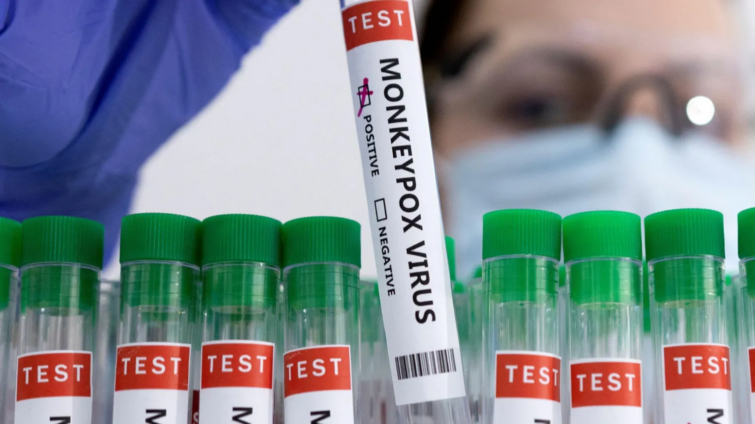The World Health Organization (WHO) has called for an emergency committee of experts meeting to determine whether the mpox outbreak constitutes a Public Health Emergency of international concern.
According to WHO Director-General Dr Tedros Adhanom Ghebreyesus, the African region is witnessing a record surge in mpox cases since the beginning of 2024, with the virus spreading to new countries that were previously unaffected, prompting concerns about its rapid expansion.
In a statement issued on August 8, 2024, the WHO reported that 15 African countries were experiencing an mpox outbreak, resulting in 2,030 confirmed cases and 13 deaths so far in 2024. This surpasses the total cases and deaths reported in 2023, which stood at 1,145 cases and seven deaths. Notably, four countries - Burundi, Kenya, Rwanda, and Uganda - that were previously unaffected by mpox have reported cases since mid-July 2024.
The Democratic Republic of Congo, which accounts for over 90% of reported cases, has a new variant circulating in its eastern region since September 2023. This new variant has also been reported in neighbouring Rwanda and Uganda, while Kenya has confirmed cases of the new variant. Ongoing analysis in Burundi aims to determine if reported cases are attributed to the new variant.
WHO Regional Director for Africa, Dr Matshidiso Moeti, emphasises the urgent need to halt the spread of the virus, stating: 'The top priority is to swiftly interrupt the transmission of the virus.'
Dr Moeti also says they are working closely with their partners to support affected countries in strengthening outbreak control measures and ensuring that community engagement is at the forefront of their efforts to bring these outbreaks under control and ultimately end them.
According to WHO, the transmission patterns of the virus vary across the region. In eastern Democratic Republic of the Congo, the new variant (clade 1b) is primarily spreading through sexual contact and high population movement.
In contrast, most cases in South Africa are among individuals who identify as men having sex with men. Meanwhile, transmission in West and Central Africa appears to be linked to the 2022 global outbreak.
WHO says further analysis is necessary to gain a deeper understanding of the transmission patterns, which will inform and refine the response to the outbreak.
The WHO says it is collaborating with various partners, such as the Africa Centres for Disease Control and Prevention, to mount a comprehensive response to the outbreak at global, regional, and national levels.
In the African region, the organisation is providing support to national authorities through its country teams and deployed experts, focusing on enhancing critical response areas including surveillance, testing, clinical care, and infection control measures.
The Organisation is collaborating with health authorities to improve access to treatments and diagnostic services, enhance community awareness about the disease, strengthen field investigations and case finding, boost contact tracing and support key populations, and mobilize financial resources for an effective response.
Additionally, WHO is fast-tracking the Emergency Use Listing Procedure to expedite the availability of unlicensed vaccines, therapeutics, and diagnostics, working with countries to develop vaccination strategies and plans for rollout, and emphasizing that vaccines are just one tool among many used to control mpox outbreaks.
Mpox typically spreads from animals to humans in tropical rainforest areas where virus-carrying animals are present. Human-to-human transmission occurs through contact with infected bodily fluids, skin lesions, mucosal surfaces, respiratory droplets, or contaminated objects. Treatment focuses on managing symptoms, and potential therapeutics are being developed and tested. To control the outbreak, it's crucial to raise awareness among communities and educate healthcare workers on prevention and infection control measures to prevent transmission and stop the spread of the disease.
Latest Stories
-
Electricity tariffs up by 14.75%, water by 4.02% in latest review
16 minutes -
Francophonie Festival 2025: A celebration of education and culture
16 minutes -
Most Ghanaians are like single-phased wires -Prof. Akosa
48 minutes -
GUBA leads historic Memphis-Ghana Trade Mission, paving the way for diaspora investment
55 minutes -
KNUST declares 2 former students persona non grata over indiscipline, campus disturbances
1 hour -
IGP clarifies comments on recruitment of Bawku youth into the police service
1 hour -
GOIL CEO tours Tema Lubes Oil Company
3 hours -
Communication Minister meets Afriwave Telecom management
3 hours -
We cannot remain imprisoned in history and lamentation – Prof. Lumumba urges
3 hours -
Ukraine allies pledge €21bn in fresh military aid
3 hours -
Bawku: IGP’s recruitment comment may be well-intended but timing is bad – Security analyst
3 hours -
We must re-enter 21st century with laws known to Ghana – Prof Lumumba
3 hours -
Minority urges gov’t to take drastic action amid fresh clashes in Bawku
4 hours -
Bosompem Richmond writes: IGP Yohunu’s approach to Bawku conflict dangerous
4 hours -
Bawku crisis: IGP’s recruitment comment out of place – Minority
4 hours

